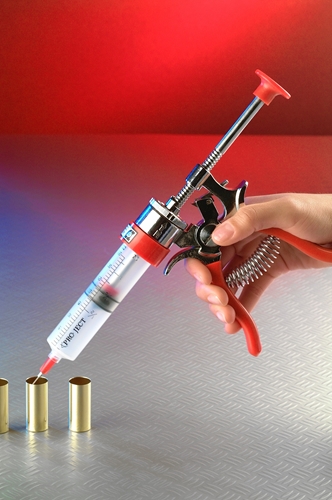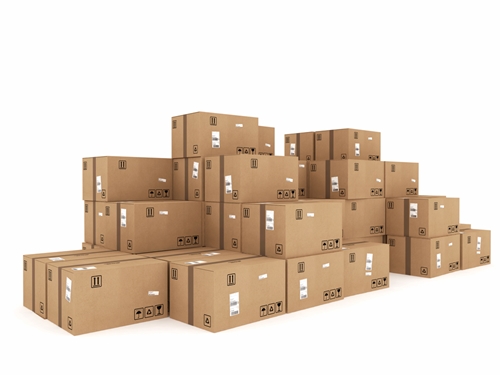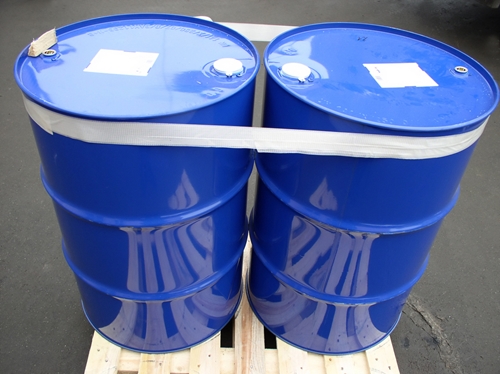

- Contributions by industrial experts with engineers in mind
- Focused on specialty-chemical material applications and selection
Knowledge Center
Silicone Adhesives in the Food and Drug Industry

Silicone Adhesives in the Food and Drug Industry
The food and drug industry must comply with strict regulations in all facets of production, from manufacture to packaging and end-use. In addition to regulations, speed and reliability of production are paramount - so modern materials and techniques are necessary to ensure smooth processing and compliance. Adhesives and sealants play an important role in all of those facets of the food and drug industry. Silicone compounds are well suited to the industry because of their reliability under extreme conditions and ability to meet FDA standards
What are Silicone Adhesives?
Silicone adhesives are polymers based on silicon-oxygen chemistry and generally cure to a rubber-like solid. They can come in one- or two- part formulations. One-part formulations cure via room-temperature vulcanization (RTV) using moisture in the air and generally take 24 hours or longer to cure. There are also UV curable silicones for high speed assembly or coating. The length of cure time increases with thickness, and particularly deep sections usually use a two-part formulation. Two-part formulations use a catalyst that allows curing in unlimited depth, usually in under 24 hours. Meter-mix equipment is used to combine parts, making two-part formulations somewhat more difficult to apply. Silicone adhesives are versatile in their cured form and can range in color from opaque black to optically clear. They can cure to soft, rubbery materials or relatively hard resins.
"Silicones are also highly resistant to water and moisture, allowing their use in wet conditions or with liquids. "
Unique advantages of silicone adhesives
Silicones adhesives have a number of advantageous properties that make them ideal for the food and drug industry. They have excellent resistance to both heat and cold - retaining their properties between -75C and 200C and standing up well to thermal cycling. This allows them to be used in all types of climates and conditions including freezing and sustained heat and high UV exposure. Silicones are also highly resistant to water and moisture, allowing their use in wet conditions or with liquids. Physical durability is another feature of silicones, standing up to repeated use and wear even in difficult and exposed conditions. All of these properties make silicone adhesives an excellent fit for the varied and demanding conditions of the food and drug industry. Many silicones also meet the requirements of UL 94 V standards for flame retardance in electrical devices.
How are silicone adhesives used?
Silicone adhesive and sealants are used in a variety of different ways in the food and drug industry.
- Industrial Processing - Adhesives and sealants are used across industrial settings, but only a small subsection meet FDA and NSF regulations and standards. Silicones make up a large part of those adhesives that do meet regulations such as NSF 51 and FDA 21, as well USDA H1 designation for incidental food contact. Depending on the system used, silicone adhesives and sealants are available for gasketing and assembly in various levels of contact with food and drug products.
- Water distribution - Silicone adhesives are also used frequently in water distribution systems, since they are highly resistant to degradation or contamination in water. A number of adhesives have been certified with NSF standard 61 for water contact and make an excellent choice for sealing tanks as well as attaching and repairing connecting equipment.
- Food-safe construction - Adhesives and sealants must also be approved for incidental or direct food contact where they are being served. Silicone can fill that role as well, and bonds well to glass for display cases and construction of other equipment in the restaurant and consumer food-production industry.
- Medical and Drug Applications - In addition to FDA and NSF standards, many silicone adhesives are qualified to ISO 10993 and USP VI regulations certified for use in medical devices and can be used as adhesives with transdermal drug delivery systems as well as components in implanted devices.






